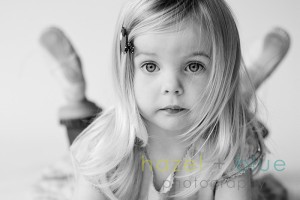
I love NPR. But a recent segment on women’s identities leaves me self-conscious.
On Morning Edition, Tina Brown recommended Katie Roiphe’s Financial Times article “Disappearing Mothers” in which the controversial feminist critiques the loss of women’s identities when they post pictures of their children rather than themselves on Facebook profiles. I’m one of the disappearing moms Roiphe targets. I’ve selected an image of my daughters Maia and Eve for my headshot. Roiphe pantomimes my social networking: “Here is my pretty family, she seems to be saying, I don’t matter any more.”
Brown’s recommendation worked. I picked up Roiphe’s In Praise Of Messy Lives1 to continue arguing with her:
Motherhood makes me matter all the more. My daughters watch me. They watch as I enjoy old friends and introduce myself to new people, sigh at disappointments, accept compliments, garden and cook and eat with love, trip over myself, and delight in books and ideas. And they imitate me. I’m shadowed by two beautiful people (Roiphe’s right there – my family’s pretty) who will learn to live as timidly or as boldly as I do. I matter.
Even more than a model, I’m a mother. As she curls up next to me with her books, Maia whispers that she wants to be near me always. Why shouldn’t my Facebook profile admit our intimacy? My youngest, Eve, nurses while Maia and I read. There’s an immediacy to breastfeeding, an urgent beauty all the more moving because it doesn’t last. Soon, my daughters will wave my hands away when I reach for them. Or, they’ll be unsure and I’ll wave when they look back, encouraging their confidence. And my identity will not have suffered for holding on to them as long as I could. Or for sharing their pictures.
I’m not one of los desaparecidos as Roiphe’s article title suggests. I’m not disappeared or even diminished by motherhood. Instead, I’ve become something more than my single self. Something more than singular, even: a few weeks ago, Eve forgot her usual “mama” and began instead calling me “mimi.” She calls me the same name she calls herself: Me. When she calls for me, she names us both: Me, Me. We are two in one.
Not unlike the early cell divisions of her beginnings, this doubling – Me, Me – makes more of me. The linguistic and literal mitoses of motherhood have changed, but not erased, my identity. Maybe Roiphe’s in part right about “the woman with the baby on her Facebook page” (me) when she complains that “this style of effacement, this voluntary loss of self, comes naturally to her.” I did volunteer for motherhood and nature has something to do with it. When I volunteered my body, pregnancy changed me from one to two-in-one. Like motherhood does now.
My heightened sense of self-with-children doesn’t mean that I’ve forgotten my feminism, as Roiphe worries. I feel more empowered than erased. Far from mind numbing, motherhood makes my head spin with ideas and inspirations. If I wondered in grad school how to break that notorious binary literary theorists like to critically eye, I found it in the revelation of motherhood. I’m not mother or child, but rather both at once. “Me, me.” Literally from the mouth of babes.
Roiphe opens her essay: “If from beyond the grave Betty Friedman were to review the Facebook habits of the over-thirty set, I am afraid she would be very disappointed in us.” But my Profile picture isn’t a “problem that has no name.” It’s a picture of me, as I am right now: Me, me.
Friedman focuses on young, unhappy and perhaps most importantly culturally mandated motherhoods. But I married and gave birth in my thirties – after years of coffee bartending and book reading, living in old beach hotels on California’s central coast, suffering aimless angsts and boredoms, backpacking through Tennessee and Europe, sampling academic trajectories and wines, and chasing after Zapatistas in Southeastern Mexico.
I’m not, as Roiphe suggests, Friedman’s disappointed housewife. I am something more than my children. Not unlike Roiphe, I’m an educator. I savor friendships and foods. I listen to NPR. I read intriguingly controversial feminists on pop culture. Sometimes, I argue with them.
Is it self-effacing that my Facebook profile picture showcases my daughters? Like the Ryan Gosling comic that reads, “Girl, I love it when you wear your yoga pants all day” makes me rethink my more comfortable ensembles, Katie Roiphe makes me rethink my profile picture. But my reconsiderations haven’t left me dumbfounded at my loss of self. Instead, they’ve made me proud. Of me.
And of Me, Me. A conflation of mother and daughter I’ll celebrate. You can see us at Facebook.
1 Roiphe’s latest book In Praise Of Messy Lives, by the way, is a great read. I respond here to her “Disappearing Mothers,” which appears as “The Feminine Mystique on Facebook” in the book. I nodded along with if not cheered many of the essays in her collection. Thanks to Katie Roiphe for encouraging conversations and ideas.